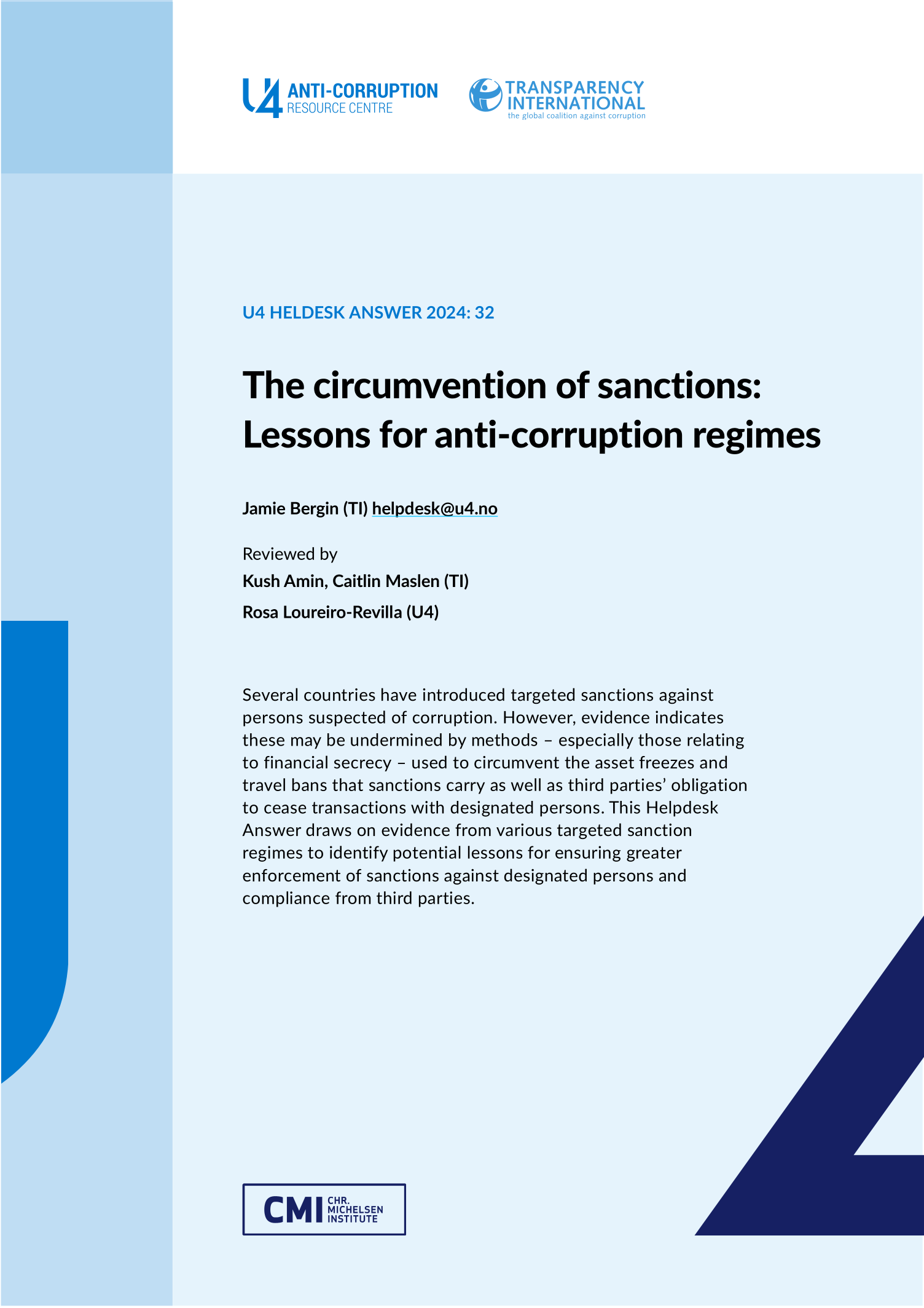Main points
- There is a growing literature on the use of targeted, Magnitsky style sanctions against corrupt actors, but the circumvention or evasion of these is an understudied aspect.
- The existing anti-corruption regimes penalise circumvention, but existing data on enforcement and the rate of circumvention is limited.
- Anecdotal evidence, however, indicates that designated persons may make use of several circumvention methods analogous to those used for money laundering in order to overcome asset freezes and travel bans entailed by sanctions.
- They are typically assisted by ‘enablers’, professional third parties, such as wealth managers, who provide these methods as a service. Other third parties may also wittingly or unwittingly continue to transact with a designated person, violating the sanction and their obligation to carry out due diligence on clients.
- The causes of circumvention include a lack of investment in enforcement, insufficient international coordination across jurisdictions, challenges faced in sanctions screening and the abuse of financial secrecy rules, especially in so-called circumvention hubs.
- The literature, especially pertaining to other sanctions regimes, identifies potential measures to address these causes and counter these methods. These include: investing in institutional capacity to enforce compliance with sanctions; strengthening beneficial ownership and asset transparency laws; and promoting international cooperation.
- Some measures take a punitive, deterrent approach, such as extending the primary sanction to family members of the designated person or introducing robust penalties or even secondary sanctions against enablers. Several commentators stress these should align with legal safeguards.
- Other measures take a more incentive based approach with, for example, the state more proactively supporting companies to fulfil their legal obligation to carry out due diligence and sanctions screening, including using timely information and technology opportunities.



